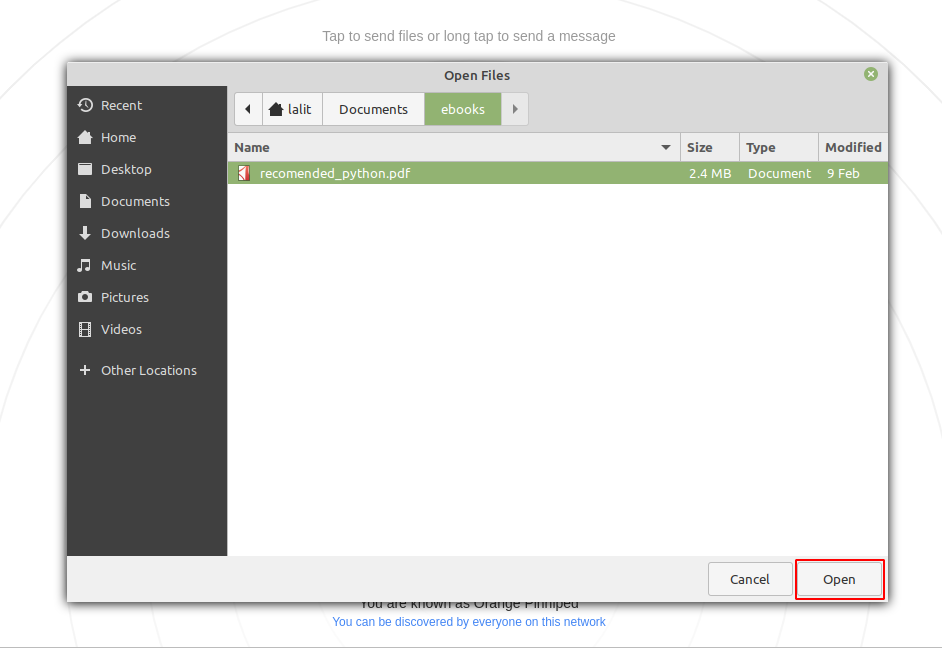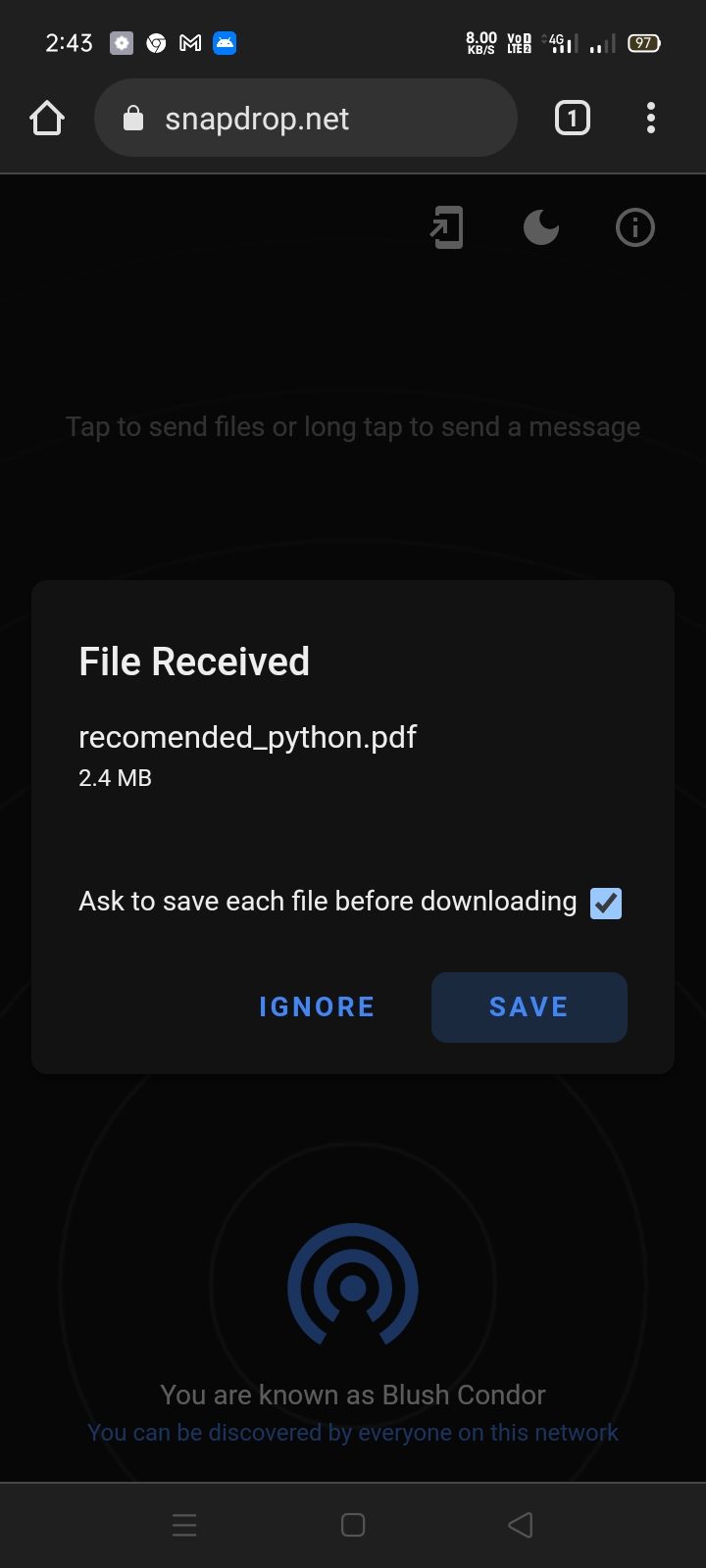Snapdrop is a free and open-source local file-sharing web application. It runs in a browser and creates a P2P connection using WebRTC to share files and directories.
It works like Apple’s Airdrop but instead of supporting only macOS and iOS platforms, it supports almost all the operating systems. You even don’t need to register for using Snapdrop services.
In this article, I will discuss Snapdrop and its usage for transferring files.
Features of Snapdrop
The key features of Snapdrop are –
- Free and opensource
- Simple and fast
- The web-based application so does not requires installation
- Secure file sharing
- Peer to Peer
- Drag and drop to send a file
- User registration is not required
How to use Snapdrop to Send and Receive files
For using Snapdrop all the devices where you want to send or receive files should be connected to the same wifi network. First, open the https://snapdrop.net/ on both receiver and sender devices. When the website opens you will be assigned a name for your device so that you can identify where to send the file.

Your device name will be displayed on the other device as you can see in the image below.

Now to send a file simply click on the device name this will open the system gallery where you can select a file to send.
Click on open to send the file.

Now on the receiver’s device click on save to save this file.

Is transferring files using Snapdrop safe?
We recommend using Snapdrop on a Wifi network that is secured with a password. Snapdrop opens a connection on your local network for transferring files and closes also when you close the tab in your browser. It doesn’t keep any kind of information or data that you transfer so it is safe and respect user privacy.
Conclusion
In my opinion, Snapdrop is one of the best cross-platform applications for transferring files quickly. I would say you should try it at least once.
Now if you have a query or suggestion then write us in the comments below.
